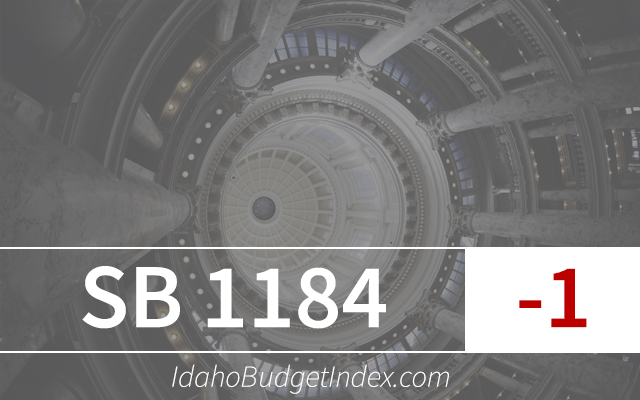


The Idaho Budget Index examines appropriation bills on several fronts to add important context to lawmakers’ discussions as they are considered on the floor of the House and Senate. Among the issues we look at in drawing a conclusion about a budget:
Does the agency requesting these funds serve a proper role of government? Has wasteful or duplicative spending been identified within the agency, and if so, has that spending been eliminated or corrected? Does the budget examine existing spending to look for opportunities to contain spending, e.g., through a base reduction? If there is a maintenance budget, is that maintenance budget appropriate? Are the line items appropriate in type and size, and are they absolutely necessary for serving the public? Does the budget contemplate the addition of new employees or programs? Does the appropriation increase dependency on the federal government?
Our analysis is intended to provide lawmakers and their constituents with a frame of reference for conservative budgeting, by summarizing whether appropriation measures contain items that are sincerely objectionable or sincerely supportable.
Analysis:
This appropriation has grown significantly in the last several years from an actual expenditure of $99.8 million in Fiscal Year 2018 to a requested $124.3 million for Fiscal Year 2020, more than 24 percent in just two years.
Lawmakers added a new program, suicide prevention and awareness, in Fiscal Year 2017. The appropriation for the new program was $971,000 for FY17. That appropriation grew to $1.3 million in Fiscal Year 2019. The FY20 request by the governor was for an additional $1.026 million, but the Joint Finance-Appropriations Committee simply included “partial funding,” of $200,000, which portends a larger request next session.
By not funding the request, JFAC has put those who support the program in the position of claiming that the partial funding undermined moving the program to the next level. Holding the line on the appropriation at $1.3 million would have made more sense, rather than simply adding an arbitrary $200,000.
Rating: -1


